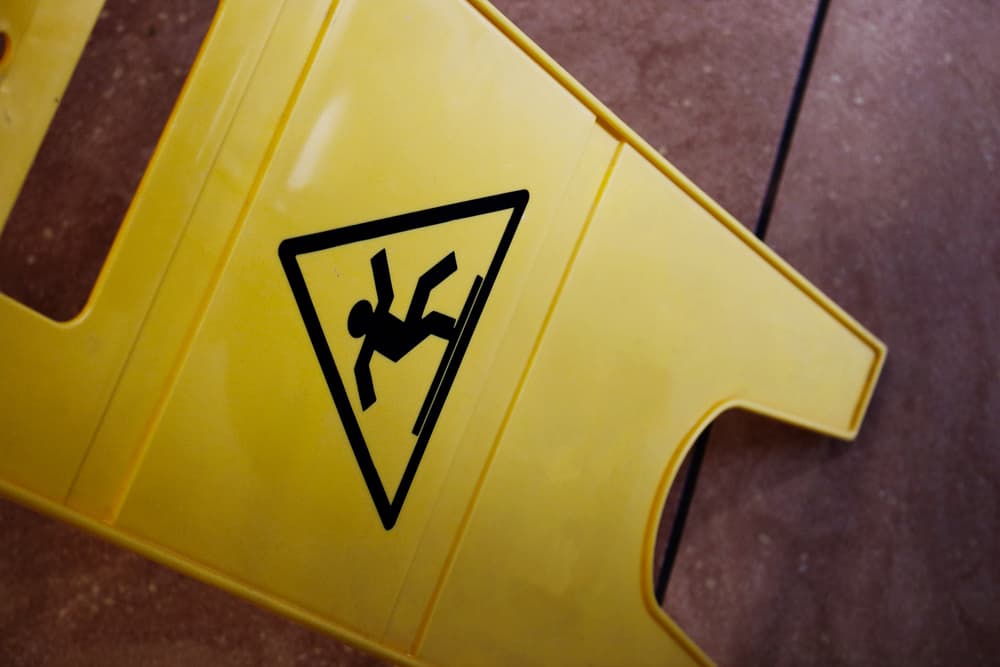Supermarkets are the most frequented stores by the average American. As a result, injuries caused by store negligence are not uncommon, but neither are illnesses.
Common supermarket accidents often occur from damaged grocery carts, slippery floors, and floor mats. Malfunctioning automatic sliding doors, items falling from shelves, tripping over obstructions on floors, and uneven pavements or tar surfaces in parking lots are also culprits for frequent accidents. Finally, spoiled or tainted foods can also cause food poisoning.
There are countless regulations in the U.S. for ensuring food safety in establishments that sell food, including grocery stores. Supermarket managers and employees must also ensure customers are safe from injuries by removing potential hazards.
Premises liability laws apply to supermarkets with a duty of care, ensuring their property is safe for customers to use and protect them from common hazards.
Seeking Compensation for a Supermarket Injury Claim
The store owner is not responsible for every harm but only for a foreseeable accident. For example, slipping over a forgotten crate is a foreseeable accident. Then again, falling merchandise from an earthquake is unforeseeable.
Store owners must take reasonable care to ensure their stores are safe from everyday hazards. These include removing aisle obstructions, providing correctly placed and undamaged mats, clearing up leaks and spills, etc.
Therefore, negligence or a breach of duty of care places the supermarket in a position where it is liable for any actual and measurable damages to you.
Burden of Proof
After an injury in a supermarket, you need to support your claim with the legal burden of proof. This is how to collect the evidence required:
Report it to the manager
You or another person at the accident scene must immediately call the manager to the scene. Ensure the manager files an incident report if the supermarket is part of a larger chain and gets a copy. The report must include your contact information, the causes of the accident, and the date and time it occurred. Additionally, ask the manager of the store for their insurer’s details.
Get medical care and keep records
Sometimes your injuries may not warrant a call to 911, but you must seek a medical evaluation as soon as you can. Whether you go to your primary care provider or a hospital for the medical assessment, make sure they have the details about how, when, and where your injuries occurred. Also, keep a copy of all the medical reports, medical bills, medicines, and other expenses related to your injuries.
Witness information
Any witnesses, especially independent ones, are invaluable to your claim. Get their names and contact information so that your lawyer can get their statements. For example, witnesses can attest to spills that were ignored by employees, having seen other customers almost tripping on a mat, a door that was not functioning correctly, etc.
Get evidence from pictures and cameras
Use your mobile phone to record the scene at the time of your accident. Make sure the photographs or videos have a date and time. Also, ask for footage from surveillance cameras in the store.
If you get food poisoning, make sure to take a photograph of the store receipt and sell-by-date together as proof.
Wage compensation
You can seek compensation for wages and other lost work benefits resulting from your injuries. Ask your employer for a statement to prove this.
Realistic Compensation
There is no set amount to expect in compensation. After your accident, your lawyer will evaluate your case because the amount can vary from one case to the other.
The variables include compensation for your medical expenses, including other treatments like physiotherapy, seeing a psychologist, etc., your loss of income, and the physical and emotional pain suffered.
Therefore, if you are in a slip and fall with non-life-changing injuries that were temporary, damages may range between ten and fifteen thousand dollars. Severe injuries are different because the claim will depend on the number of surgeries required and how long you could not earn a wage. Amounts can be upwards of $100,000. Then again, if you can prove negligence by the supermarket owner or manager – they were aware of the problem and did nothing to rectify it – the damages increase by hundreds of thousands of dollars.
Final Say
Therefore, avoid all the common mistakes that will deny you the right to a substantial supermarket compensation claim. These common mistakes include leaving the accident scene before reporting it and delaying medical treatment. Finally, never say anything that may minimize your injuries or the incident.


